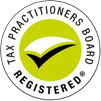When operating your business as a company, it is your duty to lodge an annual company tax return showing your taxable income and the amount of tax due on that income.
Limitations of deductions
Taxable income is computed by deducting certain expenses (also referred to as allowed deductions) from your assessable income. For these expenses to be deductible, they must be directly related to assessable income and must not exceed maximum amounts set by tax laws.
Accrual and cash methods
Generally, you can claim most expenses incurred in the daily operations of your business in the year they are incurred. This is known as the accrual method of accounting. But if your business is using the cash (or receipts) accounting method, you can claim the deductions in the year you actually pay for these expenses, rather than in the year these expenses were incurred.
Types of deductions
Before claiming an expense as a deduction, you need to determine whether it falls under any of the following:
- Deductions you can claim in the income year you incur them;
- Deductions you can claim over a number of years; or
- Deductions you can never claim.
Common business deductions
The following expenses are considered directly related to your business and may be deducted from your assessable income:
- Advertising expenses to sell trading stock, hire employees or gain publicity for your business name.
- Business travel expenses that are properly documented.
- Fringe benefits provided to an employee including the corresponding fringe benefits tax you pay.
- Expenses related to your home work area if you operate your business entirely or partly from home, such as rent, mortgage interest rates, land taxes and house insurance premiums, phone rental and business calls, Internet fees, depreciation of office furniture and equipment and other utility expenses.
- Motor vehicle expenses.
- Phone expenses.
- Plant and equipment depreciation expense.
- Super contributions you make for yourself and for your employees to a complying super fund or retirement savings account.
- Salary and wages.
- Tax-related expenses for bookkeeping, tax return preparation, assessment objections and appeals and attendance at an Australian Tax Office (ATO) audit.
- Repairs.
Some expenses that are not allowed to be claimed in your company tax return are:
- Private or domestic expenses such as your family expenses.
- Expenses relating to income that is not taxable such as money you earn from a hobby.
- Expenses that are specifically non-deductible under tax laws such as parking fines.
You should also be aware of special deductions that may be used to reduce assessable income in your company tax return, especially if you operate a research and development company or are a primary producer.




